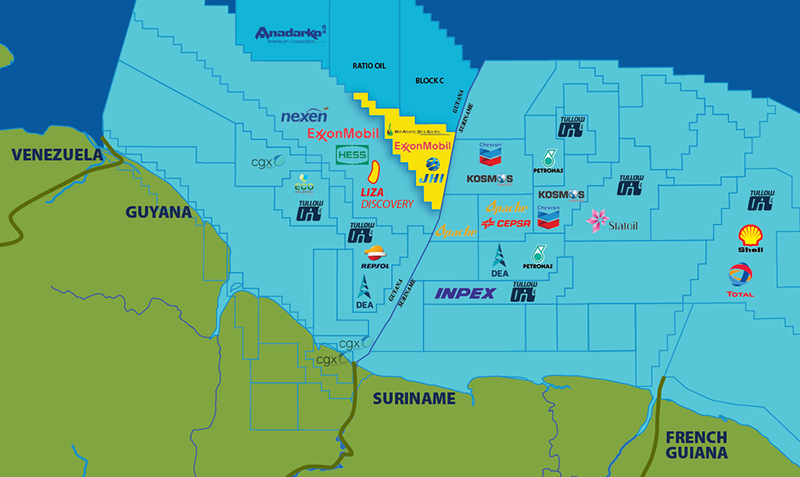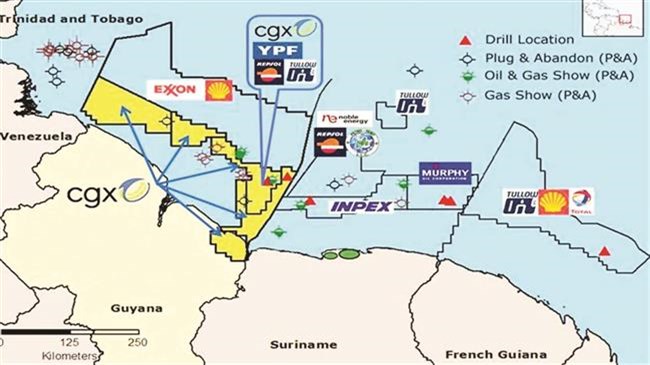GEORGETOWN –– Guyana’s government has said the cabinet is reviewing a profit sharing contract with United States oil giant ExxonMobil amid mounting criticisms about its reported lopsidedness from various sections of society as the Caribbean nation prepares to become an oil and gas producer in less than two years.
Guyana’s President David Granger told reporters this week that while he is not promising a renegotiation of the production sharing agreement with Exxon and its two other partners, cabinet has indeed taken note of the growing body of criticism of the agreement and is looking at the whole issue before making any pronouncement.
Guyana will get two percent royalties on oil produced, giving it about $1 million per day when actual production begins in 2020, but opposition parties, civil society groups, academics and even Jan Mangal, Granger’s own specially hired petroleum adviser, have all demanded that the deal be reviewed so the country could get a bigger share of oil revenues. Mangal is a former high ranking executive at Chevron.
Exxon and partners Hess Oil and Nexen of China, plan to produce about 120,000 barrels per day. They have so far drilled six successful wells and plan to complete 10 more in the current phase and about 40 in the second around 2022.
“These matters are before cabinet and it depends on what determination the cabinet arrives at. These things have to be approached very carefully. There is no prospect at the present time that it is the intention of cabinet to review it, but as I said, it is before cabinet.”
Mangal told a local university forum last week international norms for profit sharing are closer to “between 10 and 20 percent, not two percent,” he said. Authorities quickly lashed down his remarks as not being reflective of government policies.
The Exxon-led consortium discovered large amounts of oil and gas back in 2015, sending a country which has been traditionally dominated by gold, sugar, rice, bauxite and timber exports into a mad scramble to switch to oil and gas in less than five years.
The official system is now even under more pressure as nearly all of the world’s leading oil companies, Total of France, Repsol of Spain, British Petroleum, Chevron, Tullow Oil of the United Kingdom and others have all been attracted to the Guyana basin as it is no longer commercially risky officials said.


